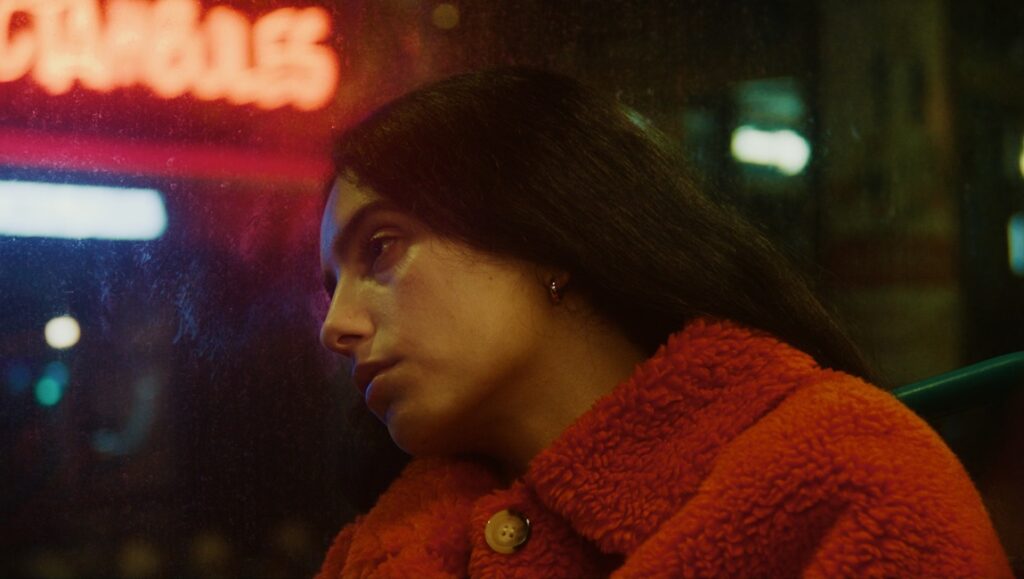There’s a mystery at the heart of writer/director Iris Kaltenbäck’s debut feature film The Rapture, but unlike the reams of true-crime documentaries and adjacent media that have proliferated wildly in the streaming age, it’s not a film about guilt or innocence. There is no question about who did what, only the ultimate unknowable why. And, unlike the narrative games played in current Academy Award favorite Anatomy of a Fall, which invites the audience to play sleuth, The Rapture states its case plainly and bluntly. It is, ultimately, about the mysteries of human nature.
As the film begins, Lydia (Hafsia Herzi) is in the midst of a breakup with her long-term, live-in boyfriend. He has cheated on her and decides to end the relationship rather than work through their problems. Lydia, a midwife at a large hospital, throws herself into her work, taking on long shifts and barely leaving the house in her free time. Her best friend, Salome (Nina Meurisse), discovers that she is pregnant, and Lydia is overjoyed. She pours herself into helping her friend navigate her pregnancy, culminating in a difficult, but ultimately successful, birth. In the meantime, Lydia meets a bus driver, Milos (Alexis Manenti), and the two sleep together after a fun evening out. But Milos casually informs Lydia that it was a one-time-only dalliance, and that he has no intention of seeing her again. These two strains of Lydia’s life intersect on one fateful day: as Lydia walks around the hospital with Salome’s newborn daughter, she runs into Milos, who is visiting his sickly father. Impulsively, Lydia tells Milos that the baby is his, the result of their one-night stand.
And so begins a series of deceptions, relatively benign at first, but gradually accumulating layers upon layers of increasingly desperate and complex lies. Milos demands a paternity test, and rather than stopping right there, Lydia instead concocts a counterfeit DNA test. She begins babysitting for Salome on a weekly basis, using the opportunity to take the baby and go on dates with Milos. All the while, an intermittent voiceover narration — revealed to be Milos telling his side of the story from some point in the future, after the ruse has been exposed — seeks to understand Lydia’s motivation. Kaltenbäck doesn’t psychoanalyze Lydia, instead presenting her actions as a kind of game, at least until she gets in over her head. She’s seeking connection, of course, and Herzi plays her as an introverted but highly competent professional. The film’s style is fairly unadorned, mostly medium shots that keep the focus on the performers, only occasionally interrupted by extreme closeups that suggest an interiority that’s just out of reach. There’s a surprising amount of suspense to the whole scenario; it’s not entirely clear what Lydia is ultimately going to go to jail for, and as her relationship with Milos blossoms, there’s an almost instinctive desire to see this couple make it work (despite any genuine connection being built entirely on an elaborate deception). Ultimately, The Rapture presents a fascinating rupture — a portrait of an unknowable woman who is at her core also, somehow, still very relatable. Who doesn’t want to be loved?
Originally published as part of Rendez-Vous with French Cinema 2024.


Comments are closed.